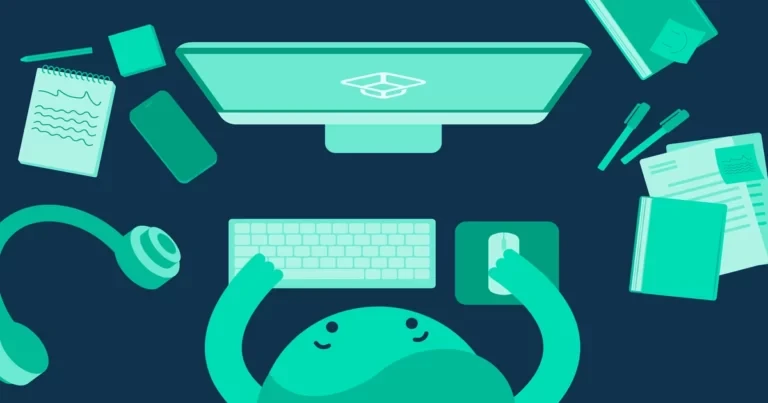Organization Tips for Students – Time Flies When You’re … Yes
You at least know what it’s like to live three parallel lives: a good student, a social butterfly, and a closet nerd who cannot let go of their passion project. Every student suffers from trying to navigate these areas, along with getting enough sleep, eating healthy, and doing some exercise to keep the body just as engaged as the mind. The thing is, everyone’s day has only 24 hours, so these three lives and their accomplices have to push each other out of the way to assert dominance. The problem is, you’re the one who gets a headache from their shoving.
You’ll be happy (or not so happy) to know you’re not alone in this. Since the beginning of time and universities, students have been torn between their many parallel lives. To mitigate the drama, we’re dishing out some organizational tips for students today.
Prioritizing – The Three Painful Truths
In a sea of tasks, you need to know which ones demand the most of your attention and arrange them accordingly.
The First Law – Studies
You should be aware of a painful truth: Your studies should come first. I know that it may not be what you want to hear with all those friends knocking your door down in order to drag you into another club (be that a disco club or an anime enthusiast club) for an all-nighter.
Here’s the deal, if you do not prioritize your studies, your studies will come and get you. You have to put effort into attending your lectures, doing coursework regularly, and setting aside the time to prepare for your exams, unless you want to find yourself trapped in a loop of failed tests, repeated years, and overall endless but fruitless studying. Early though it is to think about it, your future employer may wonder why it took you so long to graduate, and it may shed an unfavorable light on your abilities. Think about your career and how it will be impacted by what you’re doing now.
The Second Law – Quality of Life
It’s true that you may not be able to afford a villa and a car, but the quality of life starts with your health, which also needs attention. Hang on; you cry, but what about my free time?! Yes, we’re getting there, but enjoying free time and bad health are mutually exclusive – you cannot do both. Instead of living on takeouts and microwaved pizza, it’s time to learn to make simple healthy meals and take care of your body. We’ve all heard legends about the “freshman 15” (I can confirm personally), and while fat-shaming is a poor thing to perpetuate, there is a more important implication – personal health and fitness.
A balanced diet is all you need – eat when you’re hungry, stop when you’re full, treat yourself to a snack and move on. This doesn’t work for first-year students because of the sudden freedom – I mean, after all the “we have McDonald’s at home” you’ve heard from your parents as you wistfully drove by, you can suddenly eat what you want. Another problem is the sudden increase in sedentary lifestyle – lectures, homework, studying, get-togethers with friends, sleep, and long commutes, which are no bueno for your muscles and core strength.
To avoid long-term consequences, force yourself to cook and eat healthily as much as possible, and get some physical exercise – walking instead of taking a bus, playing squash, or enjoying stress-busting gym sessions. Just get some movement in. Don’t forget to get enough sleep on most days.
The Third Law – Leisure Time
Finally, free time. I know that studying and taking care of yourself are time-consuming, but both will become a habit. Moreover, studying crunches ebb and flow, and healthy eating and exercise become a part of your routine and no longer feel like drudgery. And then you can fill your free time with whatever makes you happy – partying, reading, going to museums, drinking endless coffees with friends (it’s all up to you).
As you’re learning to adhere to the three laws of organization, remember one key thing – consistency beats perfection. When things don’t go according to plan, the best you can do is jump back into it the next day. Don’t beat yourself up over things you cannot change anymore. Do your best for as much as you can, and take the rest as it comes.
If you need help with organizing and prioritizing your study time, download our Vaia app. It comes with a study plan and analytics to keep you on track, help you stick to your goals, and make progress in your studies!
Planning – Tik Tok Goes the Clock but … Yes
The party has to stop eventually, but the clock won’t, so here are some organization tips for arranging your priorities into a coherent structure that won’t leave you burned out.
- Work with a calendar. Mark what needs to be done and when, and don’t forget to schedule free-time activities.
- Block out lecture times. Even if they’re not strictly obligatory, attending lectures will make your life that much easier when you roll into the exam period. A confession from the other side, I get annoyed when a student sends me an email full of stupid questions that I repeatedly answered in class, but they never bothered to show up. Don’t be that student.
- Make a learning plan. When you’re familiar with a syllabus, you can start planning around it. Not every subject will require the same amount of effort, so I suggest dealing with more complex ones first. Break the tasks up into chunks to make them less daunting.
- Study when you’re most likely to be productive. You know best when your brain is at its most cooperative. For example, some people prefer to study in the morning; others are night owls. Work when you know you’ll get your work done.
- Plan regular breaks. Trying to plow on for hours on end is a great way to hamper your productivity. Study breaks are important for keeping you motivated – when you’re tired, take a breather.
- Put effort into quality time spent with friends. Lots of your friends will be from university, so getting coffee with them between lectures, complaining, or studying together are all great ways to spend time. However, plan for some non-uni-related meetings when you’ll go to the cinema, do sports together, or paint the town red.
And whatever you do, check in with yourself. Sometimes you’ll have a bad day; other times unexpected circumstances may crop up – losing a day of studying is nothing compared to losing your mind over it. Develop a routine, but don’t beat yourself up about not keeping it to a T.
Some Practical Organization Tips for Life
Organization is not only about time; it’s about space too. You’ve probably heard that cluttered space means a cluttered mind or some other variation on the theme. While I don’t strictly agree with that as a fan of creative mess, I believe there are some advantages to knowing where your things are, such as avoiding the stress of looking for them at the last minute.
Here are some tips on organizing your life:
- Sort through your stuff. Decide what goes where: study materials around your workspace, pet toys in the corner or their cot, your books on relevant bookshelves (ideally thematically arranged), and so on.
- God bless checklists. Whether you use them on your phone or prefer handwritten notes, checklists are a great tool for keeping an eye out for what needs doing.
- Designate a study space. Once you routinize your studying, you’ll find it easier to focus as soon as you sit in your designated study area. This can be anywhere (kitchen desk, living room table, even a certain corner of the couch), but you should always do your assigned tasks in that space.
- Make the most out of accountability buddies. Check in with your friends and track progress to ensure consistency.
- Avoid multitasking. It takes about 30 minutes for your brain to accommodate a new task – which makes switching a tad too time-consuming. Better work on one thing first, take a proper break, and then move on to something else.
- Declutter and clean regularly. Once you’re in a productive mood, things can keep piling up. I know you don’t want to break your streak, but you should still clean and declutter your space at least once a week.
- Develop a study plan for each exam. Set a deadline before the actual deadline (to allow for leverage and avoid stress).
- Create some routine. It’s surprisingly relaxing to have a morning routine that takes you through the first several hours without forcing your brain into grouchy decision-making. Alternatively, make evenings your downtime by taking the guesswork out of them.
- Go over what you need to do the next day. Whether this is something as simple as picking out clothes or getting a sense of what obligations and chores await you, always be prepared.
Work Organisation Tips
Working brings a whole new set of organizational issues, especially if you have part-time work during your studies. If that is the case, you have to include work times into your prioritization as soon as you begin planning your days and months to come. Block out work hours, followed by lectures and studies. What’s left is your free time, which I urge you to spend doing things you enjoy. Maintaining your work-life balance to keep yourself sane is of the utmost importance. Take it from me, who’s doing it all wrong, give yourself time to rest.
On the other hand, if you’ve just entered the workforce, you might find yourself overwhelmed, exhausted, and sleeping through your weekends. That’s a perfectly normal response to suddenly changing your lifestyle and being forced into a firm routine (especially if you’re in that 9–5 model). So, how do you organize your work and out-of-work life?
- File diligently. Whatever happens at work, note it down. Get yourself a proper binder and start filing your documents, projects, and assignments in any way you prefer – as long as there is some organizational structure.
- Have me-morning-time. Mornings are that one part of the day where you have full control of how things are going – from when you want to get up to what grounding activities you do. Coffee or tea, newspapers or exercise, a morning routine is pivotal before the unpredictability of the day hits you.
- Get a hobby and work on it. When you come back from work, the only thing you want to do is face-plant the bed and do nothing for the rest of the evening. I know; I suffer from it too. Precisely because of that, it’s important to create a stress-busting, soul-warming hobby that brightens your evenings. It can be taking a walk, reading, puzzles, baking, or model-building, as long as it’s not mindless scrolling.
- Schedule your downtime. Hot baths, meditation, playing with your pets or children – you owe it to yourself to relax.
- Be productive on weekends. If you’re tied to work for 40 hours a week, you probably don’t feel like doing chores. The horror story of adulthood is that you have to work on weekends, but you’ll be unpaid – that labor includes cleaning the house, grocery shopping, fixing whatever died this week, planning for the week ahead, and just not having a good time. Try to get your work done on Saturday so that you can at least enjoy a quiet Sunday.
Of course, some life-organization tips still apply – declutter your space, spend quality time with friends, even if you have to fight tooth and nail to find that one mystical day when everyone has enough time to meet, and get some movement.
Life is Easier With Organization – Save Yourself the Drama
If you’re a student struggling with organization, you’re not alone. Student life is busy, filled with much novelty and excitement, and sometimes it’s hard to turn down new opportunities. Still, as long as you keep track of what you need to do and plan your days carefully, you’ll be able to get the most out of your days at university.
Remember these tips when organizing:
- Prioritize your tasks in the order of importance: studies, health, leisure.
- Divide tasks into sizeable chunks.
- Work with a calendar and mark things.
- Make sure to spend quality time with your friends and family.
- Aim for consistency, not perfection.
- Go easy on yourself, even when things don’t go easy on you.








